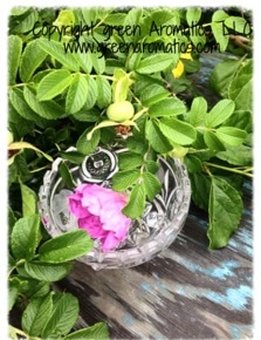 by Patrice Green Unless you’ve been living under a rock (and if you have been, may I join you?), you’ve probably noticed that there’s a lot of negative energy floating around these days. It can be very wearing for everyone, but most especially for those of us who are empathic. The good news is that there are things you can do to help ease the burden many of us feel in this distressing time. Herbally, this is a great time to cozy up to that wonderful group known as the shen tonics. Shen tonics are a group of herbs that have a direct affect on the spiritual heart and nervous system. In some cases they are adaptogenic as well as nervines. In all cases, they ease stress and help restore balance and joy to what Traditional Chinese Medicine practitioners call the “shen,” that energetic part of us which houses our spirit. There are many shen tonics, but some of my favorites are Holy Basil (Tulsi, Ocimum sanctum), Mimosa (Albizia julibrissin), Hawthorn (Crataegus), and Rosa rugosa. Holy Basil is considered a sacred plant in India. An adaptogen, Holy Basil works to restore balance to the body. As a shen tonic, it works to restore balance to the emotions. Although you can use Holy Basil as a tincture, my preferred method is drinking a soothing Holy Basil tea. If I’m feeling particularly depleted, I like to use Madelon Hope’s holy basil, nettles and licorice combination for a relaxing and rejuvenating tea. It also combines well with rose and linden. Mimosa or Silk Tree, Albizia julibrissin, is another marvelous shen tonic. Its flowers and bark are used in Chinese medicine to relieve anxiety and depression. Albizia is a wonderful herb to use when you need to feel grounded. For that reason I particularly like to use it in combination with Wood Betony, another wonderful nervine and shen tonic. I prefer using Albizia as a tincture. I find that it works beautifully with Rose also, and helps restore tranquility to a bruised spirit. Hawthorn, Crataegus, is one of the premier herbs to strengthen the cardiovascular system. It is a powerful shen tonic that seems to add joy to the spirit and restore a sense of wellbeing. Hawthorn is one of the main herbs I use in the protection formula for awakening a spiritual heart. Hawthorn is also lovely in tea form, and is a beautiful complement to Rosa Rugosa. Rosa Rugosa is the fragrant wild rose we find growing most often near the seashore. A beautiful plant with a heavenly scent, Rosa Rugosa as a glyceride truly does gladden the heart. I will be forever grateful to Linda Patterson for teaching me about this beautiful plant. As a flower essence, Rosa Rugosa helps to balance the emotions, releasing grief and transmuting negative vibrations into love and compassion. So, if you are having a hard time blocking out the seemingly omnipresent negativity, it may be time to develop a deeper relationship with one or several of these herbs. Treat yourself to a lovely shen tonic tea. Meditate with the plants, use them as glycerides, tinctures, flower essences or essential oils. I think the best thing we can do for the planet and ourselves during stressful times is to work with gentleness and compassion towards all. Shen tonics help us restore balance and serenity. Couldn’t we all use a little more kindness?  Patrice Green is an Herbal Educator, Certified Aromatherapist, Energy Medicine and Reiki Practitioner and founder of Green Aromatics. She is also the Assistant Director at the Boston School of Herbal Studies. She received her herbal training at the Boston School of Herbal Studies, and shamanic training from Isa Gucciardi, Ph. D. at the Sacred Stream in Berkley, CA. Inspired by time spent among the coastal Redwoods of Muir Woods and its beach, Green Aromatics strives to imbue its products and services with the same resilience, joy and equanimity of these majestic beings. Patrice may be reached through the Green Aromatics website. by Ashley Sapir Lathrop Anxiety is a reality for so many people. It can act as a filmy layer keeping us from shining brightly in our intentions and goals. In some families anxiety is passed from one generation to the next. For others anxiety is a result of trauma. Simply being a human being in a world with so much change and conflict happening daily is enough to invoke feelings of fear and worry. Whatever the root, from old patterns or new information that is overwhelming, I am a huge believer that life can go on without anxiety. I’ve seen it in my own life and in my clinical work as an herbalist time and again. Old patterns can be broken and new ones created so we can truly thrive in this one “wild and precious life” as Mary Oliver writes so powerfully. Loving self talk, mindfulness, engaging in joy and deep connection (to nature, animals and people) are essential parts of the formula. Having these sacred sundries in our internal pantries provides a solid foundation. Our plant allies can take it to the next level. What keeps you grounded? So much of life and presence is about having yourself firmly planted in your beautiful self. It is easy to get distracted. Committing to catching the distraction, the moment where your heart starts to speed up, or butterflies beat in your gut is a tool of awareness that can be honed. Even if it takes an hour, it is this catching that can unlock the gateway to building new neural pathways. Taking some tincture of one of our many amazing nervines can aid in that recovery process. For some it feels as if the colors in the room have just gotten brighter or there is an awareness of hunger or fatigue welcoming one back into their physical body. I love watching the shift. Have you seen that? When someone takes just the right herb and all of the sudden their eyes brighten or they start to giggle or cry. Witnessing those energetic shifts makes me giddy about getting to practice herbalism. So let’s talk about the four plants that I carry with me when I work away from my Apothecary. I simply couldn’t work without motherwort, skullcap, holy basil and passionflower. Read on to learn what I love about each of them. Motherwort is so abundant and wild and it is for these qualities that I revere her. When feeling tight and confined, as if there is just not enough room to breathe, motherwort’s message of spaciousness and tenacity can be the perfect antidote. I’ll never forget walking outside into the glaring sunlight, just weeks into new motherhood, feeling content with my new role and at the same time disoriented by all of the demands on my attention and body. Who beckoned to me from a spot of earth next to the concrete stairs? Of course it was motherwort, growing uninvited but so welcome! Motherwort is a wonderful ally for those overwhelmed by all that they give, whether through their role as parent or simply the way they interface with the world. Motherwort is well known for its affinity to anxiety that manifests as heart palpitations and sweaty palms. Additionally when I see female bodied clients who are experiencing anxiety accompanying hormonal shifts motherwort is the first herb that we try. It is almost always an important part of their formula. Skullcap is so cooling, just as you’d expect from a plant that adores having its roots near the water. I love finding skullcap in flower, growing along streambeds in the forest. This is a plant that is great for people who get really “fired up” and need to cool off a bit. Another signature of skullcap is that tightening in the top of one’s head that can happen when overthinking or prolonged tension have been occurring. Skullcap is a lovely plant ally for those that just can’t sleep due to tension they haven’t been able to release. Holy basil, for me, is like basil on steroids. Basil tea has long been an ally for me. As someone who tends towards a colder constitution the pungent warming qualities of basil have a magical effect. If you’ve never tried making tea from the leaves of a fresh basil plant I invite you to do so and experience nirvana. Simply let it steep covered for ten to fifteen minutes, sweeten with a touch of honey, inhale and prepare for deep bliss. There’s a smoothing of frazzled edges and more room to breathe. Holy basil, sister to basil, is sacred in all of India. This speaks to the nourishing qualities of the plant. The fragrance, which whisper of tropical fruit mixed with the already lovely aromatic profile of basil, enliven you on the spot. Holy basil can also nourish your adrenals and help you to build resilience. I love plants that work for the long run while soothing you in the moment. Passionflower is one of my dearest plant friends, which is no surprise to anyone who has seen my logo. This plant is just amazing for those circling thoughts that some of us experience. It has a special affinity for those who may have obsessive compulsive disorder or experience obsessive thoughts. One client had a scary car accident and couldn’t stop thinking about it every time she got behind the wheel. She took tincture of passionflower each time she got in the car and credits it to allowing her to move through the trauma. People who get “stuck” in their fears may be pleasantly surprised to see that passionflower can midwife them to freedom. These are the plants that I’ve developed strong relationships with over my years as a practicing herbalist. I’d love to hear about yours. I’m always eager to hear stories about people’s relationships with nervines, as a way of exchanging information and developing records of our collective experience. I hope our paths will cross in the future. In the meantime feel free to reach out through my website with tidbits and stories about your plant journeys. 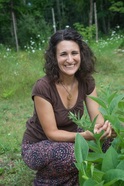 Ashley Sapir Lathrop is an herbalist and educator living below the Shawangunk Mountains in New York. She is passionate about people/plant relationships and the healing shifts that happen when people feel empowered to deeply care for themselves. Ashley has studied with indigenous healers in Nicaragua, as well as stewards of Traditional Western Herbalism here in the States. She finds great joy in gardening, wildcrafting with her family, teaching, and meeting with people in her clinical practice at a Midwifery Center. You can find Ashley at dreamkeeperbotanicals.com |
Archives
November 2023
Categories
All
|
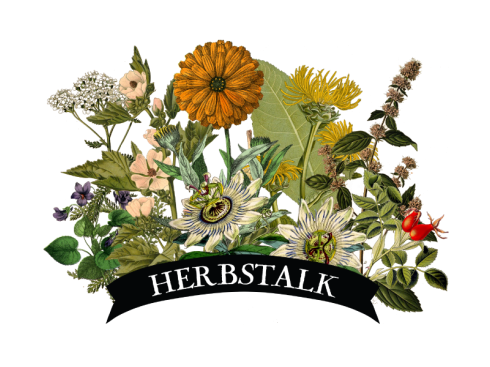
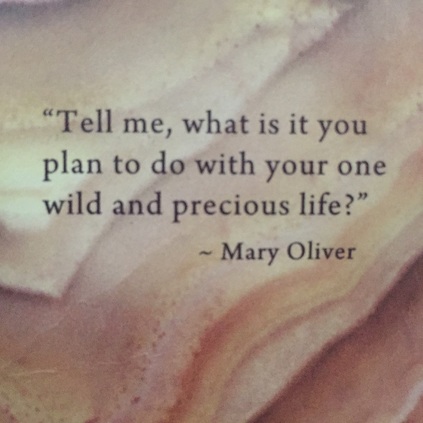
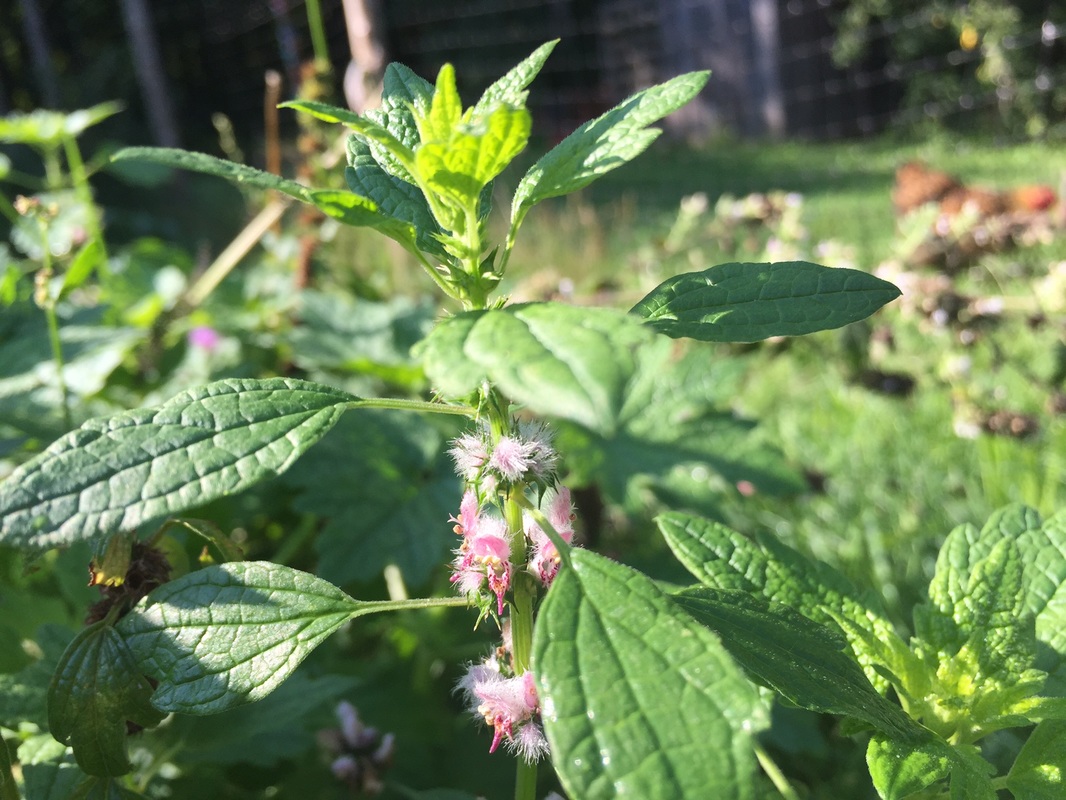
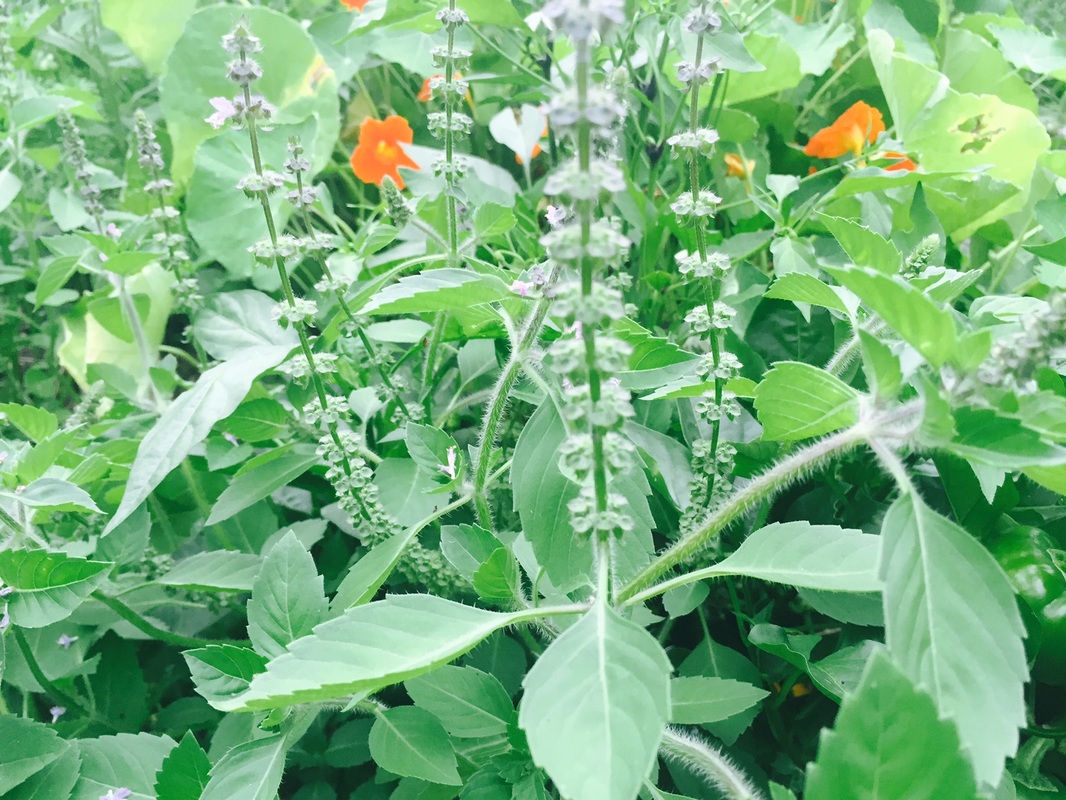
 RSS Feed
RSS Feed